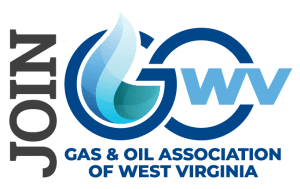By Charlie Burd

However, we must keep an eye towards the future and be thinking about ways to strengthen our competitive advantage here at home. That means in addition to continuing the exploration, production, safe transport and use of domestic natural gas and oil, we must invest in stronger local supply chains so we’re relying on Appalachia rather than places like China or Russia to modernize our economy and meet rising demand for cleaner energy.
U.S. Methanol’s official start up is one of many energy-fueled manufacturing investments that have expanded our economy in preparation for a lower emission future. Using clean and readily available natural gas as a feedstock, the facility will provide more than 200,000 metric tons of methanol annually to supply regional industrial users making everything from car parts and paints to silicone sealants and polymers.
“We see the unbelievable amount of energy we have under our feet every day with the Marcellus and Utica Shale and being able to do so much with it, there’s so many products of that,” U.S. Senator Joe Manchin said at the official opening.
Another emerging West Virginia energy success story is the recent multi-billion-dollar Adams Fork clean ammonia facility slated for Mingo County. In addition to supporting more than 2,000 construction jobs – including pipefitters and electrical workers – the plant will be an economic shot in the arm that the good people in southern West Virginia sorely need.
Primarily used in agriculture as a fertilizer, ammonia is also used in refrigerants, water purification, and in a variety of manufacturing applications. Ammonia is also one of the most efficient hydrogen carriers and produces no emissions when combusted, making it a key part of a cleaner energy future. And best of all, we’ll be making it right here in West Virginia.
Appalachia is home to some of the most inventive minds and prolific natural resources, and innovators like CNX Resources and Adams Fork Energy are putting those advantages to good use to integrate new technologies and create high quality jobs for the men and women who live here. The Adams Fork project is a perfect example: a reclaimed coal mining site that will be converted into a next generation clean ammonia production facility.
But there is risk that transformational projects like Adams Fork never get off the ground if bureaucrats in Washington pick winners and losers based on ideology instead of what’s good for Appalachian communities. The federal government should incentivize projects like Adams Fork through forthcoming regulations outlining the rules around the emerging hydrogen and ammonia economy. West Virginia can serve as the epicenter for these novel industries by leveraging new ways to utilize the vast natural resources that have safely and effectively powered our economy for generations.
We’re not asking for special treatment. We are simply trying to put our workers back on the job to make things in America again. Thankfully, West Virginia’s elected officials are working hard to ensure we are not unfairly penalized or disadvantaged relative to other states when it comes to federal policy. We’ve missed out on other important energy-driven investment opportunities more times than one can count, and we mustn’t let that happen again.
Modern history will show America’s natural gas and oil dominance, made possible thanks to West Virginia’s energy workers, helped wean the global market off Russian-produced energy and quickly advance clean air goals. That’s great news for U.S. energy security and for allies who can now access a more stable and cleaner fuel supply. Looking to the future, let’s build on that success by leveraging our vast natural gas resources to start another energy revolution.
Charlie Burd is Executive Director of the Gas and Oil Association of West Virginia (GO-WV) based in Charleston. Learn more at gowv.com.

